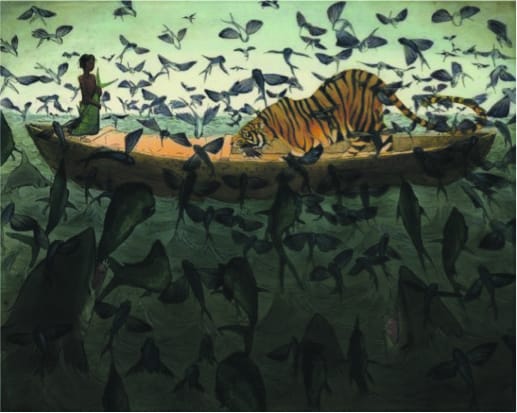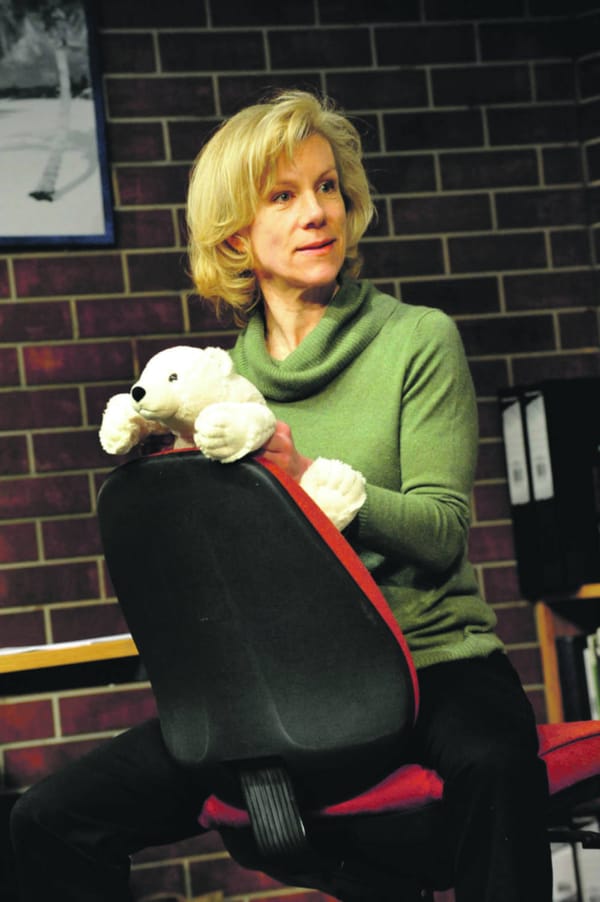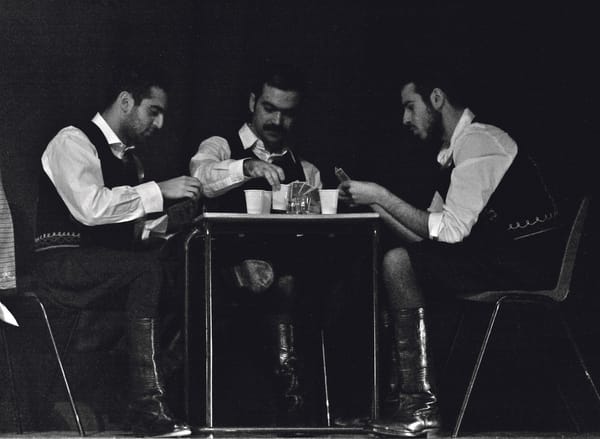The ‘info-play’ strikes again
Greenland: Another play about global warming, can the National make it exciting?

Greenland is the National Theatre’s (NT) contribution to the eco-play wave that is washing ominously over London. And they do it unique NT style. Much in the same way as ENRON did a couple of years back for the financial crisis, the piece has dream-cum-documentary-like quality. By dressing science, one part fact to about nine parts opinion of very important eco-people, in emotive stories and metaphorical displays, they provide a kind of jazzy lecture on climate change – imagine TED with more dancing. No matter who you are or where you are, there are two things in life that almost everyone appreciates: scientific rigour and dance. And what Greenland lacks in scientific rigour, it certainly makes up for in dance.
If there’s one thing the NT can’t be criticized for, it’s its sheer ingenuity. NT don’t just break the fourth wall, they kick it into little pieces, chew it to a pulp, reform it into a sculpture and then dance round it. They weave in a game of Deal or No Deal, a family counseling session, a supermarket with floating trolleys, a polar bear, a delegates’ after party at the Copenhagen Treaty conference, a man who has dedicated his life to study a certain flock of birds in Alaska, a Cambridge interview and, naturally, a scene where the ensemble cast dance to ‘It’s Raining Men’ in a shower of plastic bottles.
Whilst it makes for an entertaining two hours with no interval, I do question the potency of the info-play, especially one with such a strong scientific streak. Simon Manyonda, the affable contestant on Deal or No Deal, recounts a tale of a man, in uniquely ‘Deal’ style. Standing in a room full of people, the man spots smoke beginning to appear from under the door. He starts to panic, but everyone else says they see no smoke. He still sees the smoke, but they repeat to him, ‘there is no smoke’. Then gradually as the room fills with smoke, he begins to calm and soon he too sees no smoke, as it slowly intensifies and kills him.
I realize that took time to explain and I’m sure Manyonda told it a lot better, but it typified the info issue for me. In trying to explain why we should all listen to the climate evidence, that is solid and robust in its scientific research, they undermine it with such flimsy analogies and subjective accounts. But nevertheless it is a novel method for spreading the climate change word, if more in heart than in head. And on the way out, as I binned my empty plastic water bottle, I found myself stopping mid-action, tracking back and placing it in the green one instead. Little acorns…






